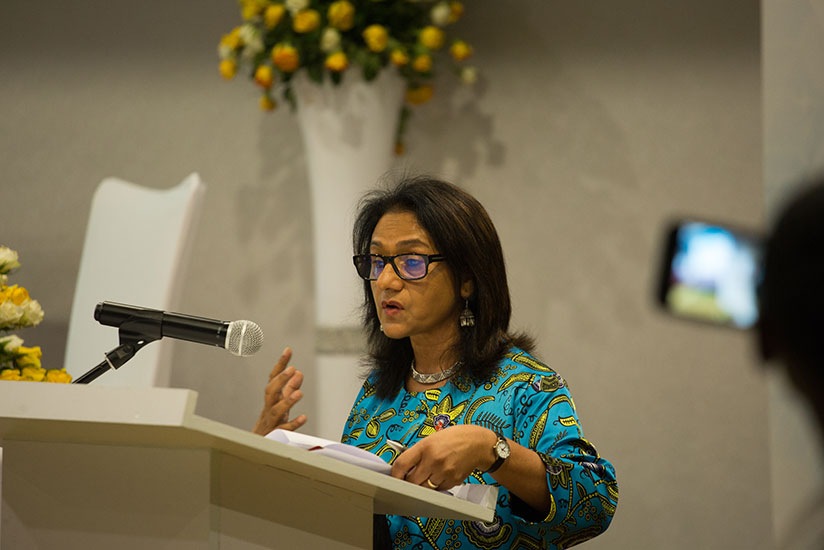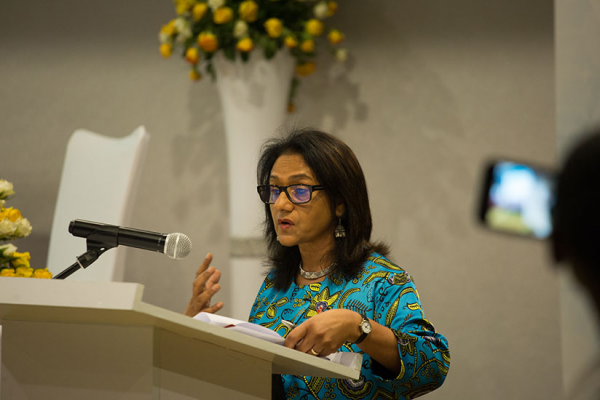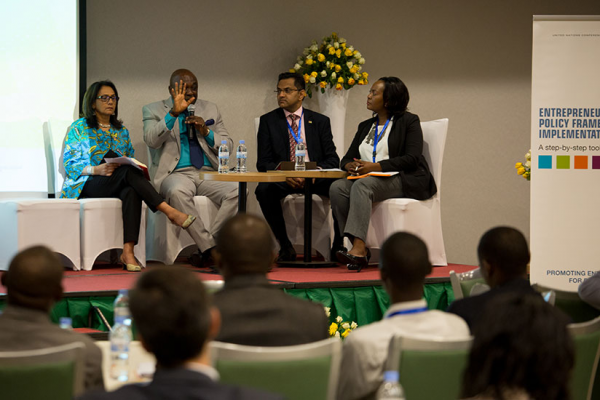
Taking Entrepreneurship to Rwanda: Parminder Vir Engages Policy Makers at the African Entrepreneurship Policy Forum

Policy and the right operating environment has been identified severally as a key impediment to the success of entrepreneurs across Africa and this has also been reiterated by founder, Tony O. Elumelu at the recently concluded Africa Forum 2017 in Egypt. The place of policy in entrepreneurship also formed the basis of discussion at the African Entrepreneurship Policy Forum in Kigali, Rwanda with CEO, Parminder Vir leading discussion at the two-day event hosted by Rwanda Development Board and the United Nations Conference on Trade and Development (UNCTAD) and attracted participants from 20 countries in a series of discussions aimed to explore innovative public sector approaches to stimulate new firm formation and growth.
Sharing the importance of creating the enabling environments for businesses to thrive and designing policies that support entrepreneurs, Parminder said while governments are designing policies to support entrepreneurs, it is critical that they work closely with the private sector in this.
“What we have observed is that policies and frameworks are developed in isolation from the real needs and concerns of the African startups and early stage enterprises. I, therefore, feel that there’s a need to reduce that gap that I believe exists between those that formulate policies and those that are concerned,” she said.
She added that policies and frameworks should be developed with the involvement of businesses, SMEs and, above all, with African emerging startups and entrepreneurs.
Speaking at the forum, Clare Akamanzi, the CEO of Rwanda Development Board, said that Rwanda has done so much at the policy level and other entrepreneurship support programmes, and that the biggest work remains in implementation.

Also speaking on the sidelines of the event, TEF mentor and Head of the entrepreneurship section at the United Nations Conference on Trade and Development (UNCTAD), Fiorina Mugione, said that Africa is still behind in terms of trading with each other and, to reverse this, conducive environments must be created by governments.
“Young entrepreneurs are increasingly crossing borders. The new generation does not only aim for local market, instead they are looking at Africa as a large market for furthering their services. We believe that facilitating trade across borders is imperative, and this can be done through putting in place favourable regulatory frameworks that facilitate entrepreneurship,” she said.
She added that this would attract investments and, in turn, help fast-track the economic development of the continent.
On the other hand, Alesimo Mwanga, a research director at the Global Entrepreneurship Network (GEN), said if African countries would put in place holistic approaches and new entrepreneurship promotion policies that are better targeted to different types of entrepreneurs, the continent would unlock access to opportunities for its young generation who make up the biggest part of Africa’s populations.
Today, there are about 200 million people aged between 15 and 24 (the youth bracket) in Africa, making Africa the continent with the youngest population globally. The current trend indicates that this figure will double by 2045, according to the African Economic Outlook.
But this dominant population is a great asset if tapped well, and is often touted as a major advantage for the continent, experts say.
